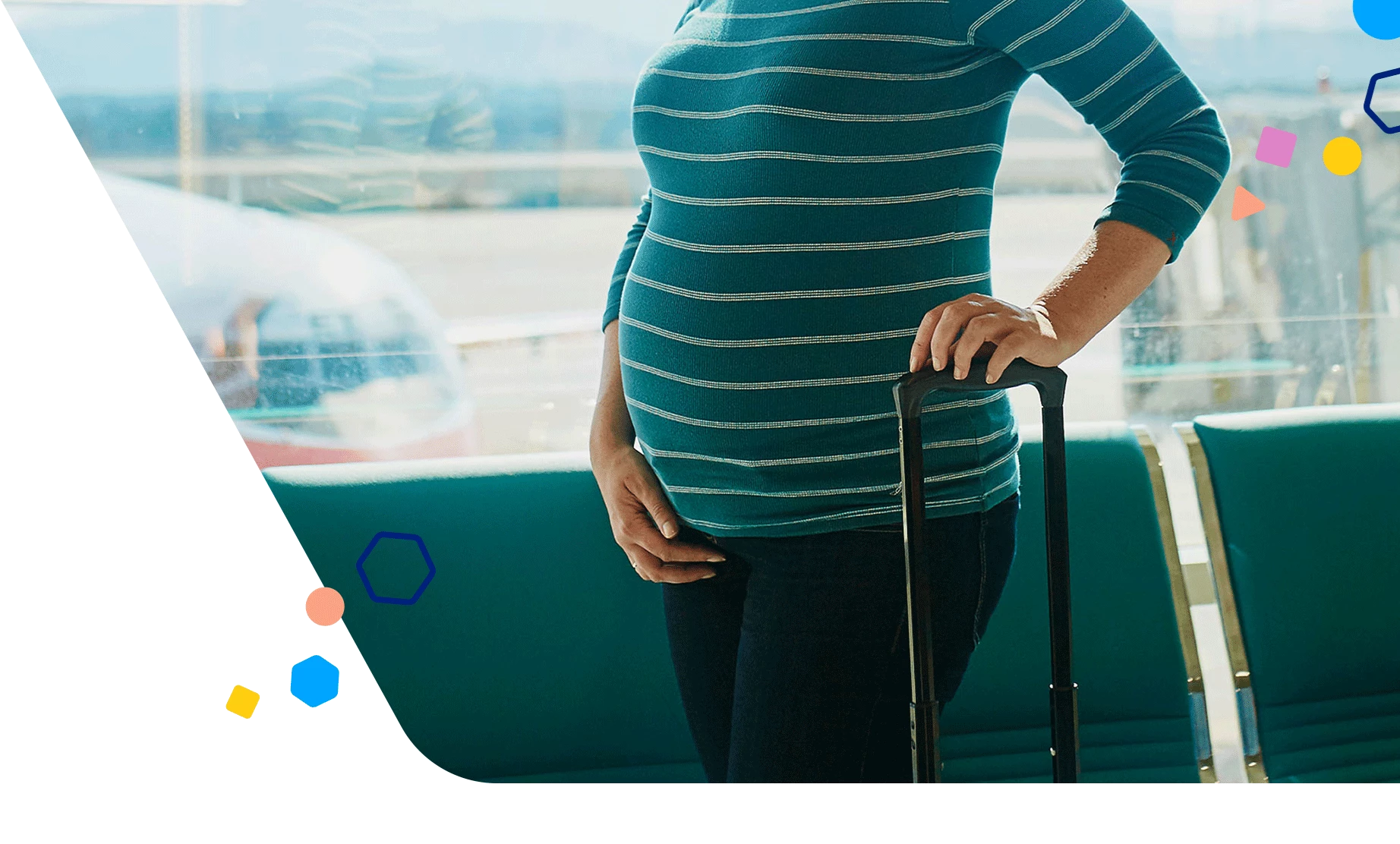Babymoon benefits and tips to plan a safe and enjoyable trip.
A couple’s getaway can be powerful during your pregnancy. Know the benefits of a babymoon and what to consider for the most enjoyment.
Getting away can provide a much needed break from the stresses of everyday life, especially when you’re expecting and experiencing all the excitement and unknowns that come with preparing for a new bundle of joy. A babymoon—a couple’s vacation taken before the baby is born—can offer the perfect time to chill out and unwind before the start of many feedings and, yes, sleepless nights.
Babymoon Benefits
A babymoon offers an opportunity to kick back and relax, and that’s key for your pregnancy health, your peace of mind, and your baby. Studies have suggested that maternal stress and anxiety during pregnancy can have immediate and long-term effects on the baby, such as a lower birth weight or increased fussiness. Researchers believe that moms-to-be who are stressed release hormones that may affect blood flow to the baby, making it difficult for him to get the nutrients he needs. Stress during pregnancy may also increase the risk of preterm labor.
Time away not only gives a couple a chance to reconnect but also to talk about how they are both feeling about their growing family. You can use the time to create a stronger, more intimate partnership that will serve you well when you face new challenges as parents. You might even discuss a plan for intimacy that allows for couple’s time after the baby arrives.
Planning a Babymoon
A few factors it can be helpful to keep in mind.
Timing
To truly enjoy your intimate holiday, it’s best to plan for a time when your morning sickness has passed. Consider scheduling your babymoon for your second trimester, as it’s typically considered the most comfortable and safest time to travel.
Destination
The purpose of a babymoon is to relax, not add to your stress. [edit] With that in mind, simple is best. Perhaps choose a nearby getaway, or at least one that doesn’t require days of travel time or complicated arrangements. It’s a good idea to check into medical provisions (and insurance coverage) at or near your destination, especially if it’s later in your pregnancy.
Considering an action-packed trip? Remember that you never know how you’re going to feel, particularly if that bout of morning sickness lasts a bit longer than expected. (In fact, you may want to choose a trip that’s refundable, just in case.) Some resorts offer ready-made babymoon packages that take the stress out of planning a getaway. They feature accommodations, romantic dinners, relaxing spa treatments, and gift baskets for the parents-to-be.
Safety details
Be sure to do your homework and talk to your doctor before traveling far from home. If you plan to fly, find out from your doctor and check with the airlines as to whether there may be any potential restrictions with flying. Because pregnancy can increase the risk of deep vein thrombosis when flying, walk around the cabin regularly throughout the flight (when it’s safe to do so, as indicated by the flight crew). Try to avoid stowing your carry-on under the seat, as it can restrict movement and your ability to stretch your legs. If possible, request a bulkhead or aisle seat for extra legroom. Then take advantage of the extra space to frequently flex and extend your ankles to encourage blood flow in the lower legs. If you’re traveling by car, stop often to get out and stretch your legs.
What to pack
Bring along anything you might need for common pregnancy symptoms, such as heartburn, constipation, and hemorrhoids. Carry a copy of your medical records with you (just so you’re prepared in the event of an emergency). And don’t forget to pack some nutritious snacks, as staying nourished with healthy choices is more important than ever.

